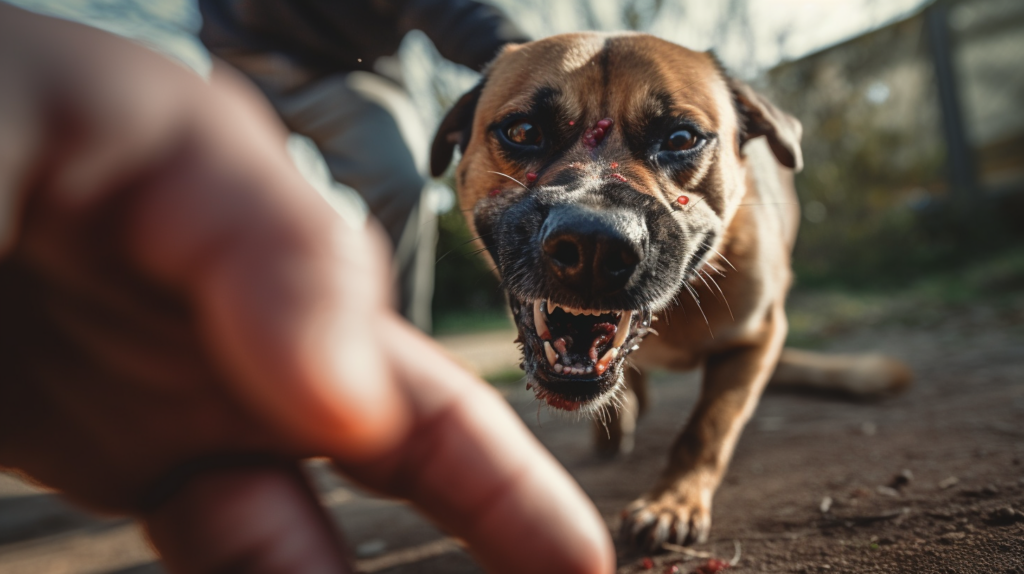Killingly Dog Attack Lawyer
Need a Killingly Dog Attack Lawyer?
If you or a loved one suffered a dog attack—you may be entitled to compensation. Dog attack claims can be complex, but Etemi Law has the experience to guide you through it. We’re committed to helping dog attack victims get the justice and compensation they deserve.
Call us today at (203) 409-8424 for a


The Reality of Dog Attacks
Not all dogs attack. But when they do, the injuries can be life-altering—physically, emotionally, and financially. From deep puncture wounds and nerve damage to permanent scarring and post-traumatic anxiety, the consequences are often severe.
At Etemi Law, our mission as your trusted Killingly dog attack lawyer is to hold negligent dog owners accountable and help victims recover the compensation they deserve. We understand the trauma you’re experiencing, and we’re here to fight for your rights with compassion and strength.
What Is a Dog Attack Lawsuit?
A dog attack lawsuit is a legal action brought when a dog attacks and injures someone, often due to the negligence or failure of the owner to properly restrain the animal. In Connecticut, dog owners and “keepers” are generally liable for all injuries their dog causes—regardless of the animal’s past behavior.
As your Killingly dog attack lawyer, we handle cases involving:
Bites causing scarring or disfigurement
Attacks on children or the elderly
Nerve injuries or infections
Incidents involving leash law violations
Dog attacks in public or private spaces
If you’ve been injured, a Killingly dog attack lawyer at Etemi Law can help you understand your legal options and pursue justice.
Who Can File a Dog Attack Claim in Killingly?
Anyone who has suffered an injury due to a dog attack may file a claim in Connecticut—whether the attack happened in a public place or while lawfully on private property.
A knowledgeable Killingly dog attack lawyer from Etemi Law will:
✅ Investigate the dog’s history and owner’s liability
✅ Navigate local leash laws and regulations
✅ Collect medical records and expert evaluations
✅ Fight for full and fair compensation
You focus on recovery—we’ll handle the legal complexities.
What Damages Can a Killingly Dog Attack Lawyer Help You Recover?
Dog attacks often leave more than just physical wounds. Victims may experience long-term trauma, require surgery, or lose wages during recovery. Compensation may include:
Medical treatment and future care
Plastic surgery for scars or disfigurement
Lost income or diminished earning capacity
Pain and suffering, including emotional distress
Therapy for anxiety or PTSD
Punitive damages in extreme cases of negligence
Our role as your Killingly dog attack lawyer is to ensure you are not pressured into settling for less than what your case is truly worth.
Why You Need a Killingly Dog Attack Lawyer
The legal process after a dog attack can be overwhelming. Insurance companies often try to minimize payouts, and many victims don’t realize the true value of their claim.
With Etemi Law on your side, you will have a powerful advocate who will:
Investigate the facts thoroughly
Secure witness statements and video evidence
Prove negligence or leash law violations
Negotiate with insurers—or take your case to trial
We bring clarity, experience, and relentless advocacy to every dog bite case.
Contact a Trusted Killingly Dog Attack Lawyer Today
Every day you wait is a day evidence could be lost or your rights compromised. If you or a loved one has been hurt by a dog, reach out to Etemi Law. A compassionate and experienced Killingly dog attack lawyer is ready to help.
📞 Call
📨 Email us directly
💻 Submit our Free Case Evaluation Form
Justice—and healing—start with one call. Let Etemi Law stand by your side.
In Killingly’s agricultural reaches, long fields crowd small back roads and Route 12 threads past farm drives where tractors and guard dogs share narrow sightlines. From the voice of an investigative reporter I note how slow-moving equipment, haybales, and hedgerows create blind spots that can turn a neighbor’s dog into a sudden hazard. Residents know these stretches; the consequences for a walker or child can be immediate and severe.
A common scene unfolds along the Quinebaug River banks and adjacent pastureland where farm dogs and livestock mingle: abrupt chases, bites to calves or ankles, and entanglements at fence lines. Injuries range from puncture wounds and deep lacerations to crush injuries when humans are knocked against farm equipment. Those wounds carry infection risks peculiar to rural settings and sometimes require staged care that begins in the field and finishes with specialist attention.
When emergency crews are called from a narrow lane, transport logistics matter: crews typically route onto Route 12 then south toward Day Kimball Hospital in nearby Putnam, a transfer that often takes roughly fifteen to twenty-five minutes depending on field access. More complex orthopedic or infection cases may prompt interfacility transfers to UConn Health or Hartford centers. Rehabilitation patterns often blend local wound-care clinics with longer outpatient physical therapy cycles.
In Danielson village the aftermath is as much social as medical: farmers, neighbors, and municipal animal control document livestock records, vaccination histories, and the sightlines that led to an encounter. Recovery often includes staged veterinary care for animals and coordinated human rehab that begins at local clinics and may extend into specialized rehabilitation elsewhere. I describe these patterns not to promise outcomes but to show what families in Killingly can realistically expect during recovery.
